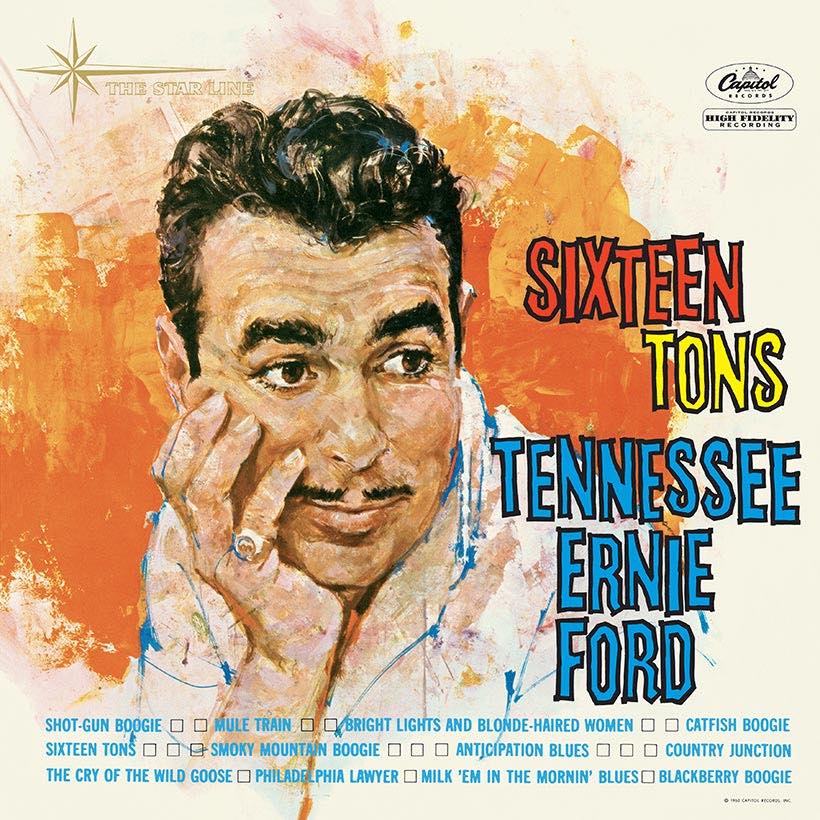Tennessee Ernie Ford wasn’t the first artist to record “Sixteen Tons,” but he made it his signature. The song, inspired by the travails of the real-life coal miners of Kentucky, was first recorded by one of his forerunners on the Capitol label, Merle Travis, in 1947.
That popular version, of a song that bore Travis’ songwriting credit from then on, didn’t show up on the Billboard charts on the day, even though Travis was emerging with other hits at the time. By 1955, it was ripe for a remake – and would later become the title of one of Ford’s Capitol albums.
Ernest Jennings Ford, from Bristol, Tennessee, had been having big country hits in the US since the late 40s. Recording as Tennessee Ernie, he racked up no fewer than 14 country chart entries in four years after debuting with the jaunty, accordion-toting “Tennessee Border” in 1949.
All but one of those singles made the Top 10, but none crossed over to the pop market, and neither did the first release to bear his surname, “River Of No Return.” It came from the movie of that name starring Robert Mitchum and Marilyn Monroe. Then the year of Ford’s crossover arrived.
Tennessee Ernie in Disneyland
In 1955, he made both the country and pop Top 10 with “Ballad Of Davy Crockett,” from the Disneyland TV series. Ford hit even bigger with his “Sixteen Tons” remake, which spent ten weeks atop the country chart and eight on the pop side. For the rest of the decade, he would see more action in the pop market, and scored several major gospel-themed albums, including Hymns, Spirituals and Nearer The Cross.
Curiously, Sixteen Tons the album didn’t arrive until 1960, and, even more surprisingly, was not a chart item, even though Ford was in the middle of a ten-year run on TV with his own variety show. Nevertheless, leading off with the title track, it became a vinyl salute to his triumphs of the decade that had just ended. The LP included his earlier country No.1s, with “Mule Train” and his own composition “The Shot Gun Boogie.”
More country hits
Also included was 1950’s “The Cry Of The Wild Goose,” which, like “Mule Train,” saw Ford scoring the country hit with a song taken into the pop charts by Frankie Laine. Sixteen Tons also sported the country top tenners “Smokey Mountain Boogie” and “Blackberry Boogie.”
“The Old Pea Picker,” as Ford was known, returned to the country chart in the mid-60s with the hit “Hicktown,” making further appearances in the 70s and recording into the 80s. He died at the age of 72 in 1991, but Sixteen Tons is a fine testament to a much-loved inductee of the Country Music Hall Of Fame.
Buy or stream the Sixteen Tons album.



